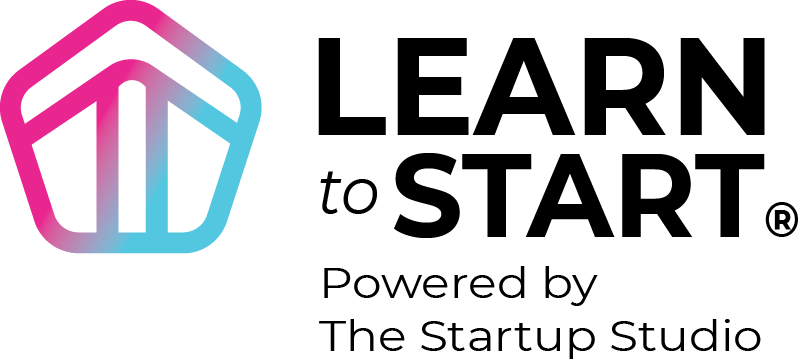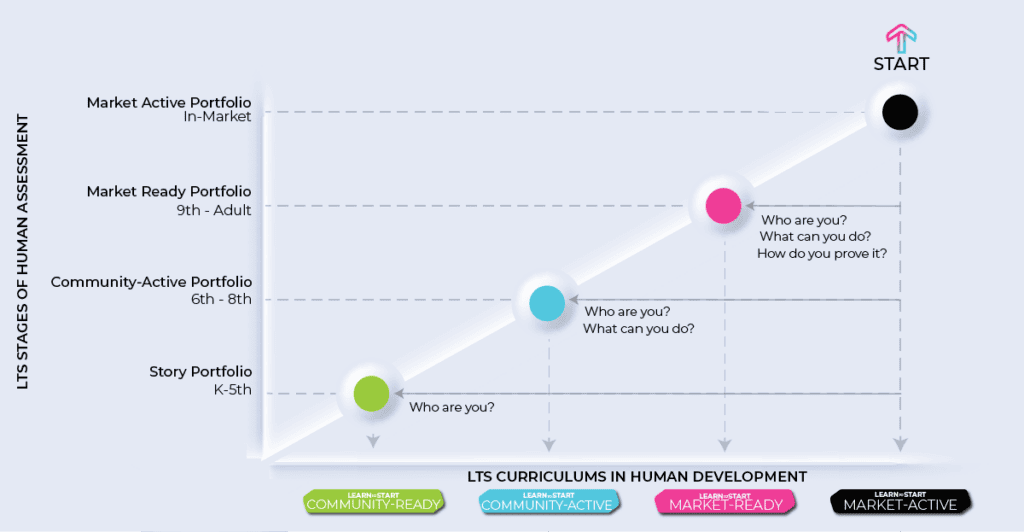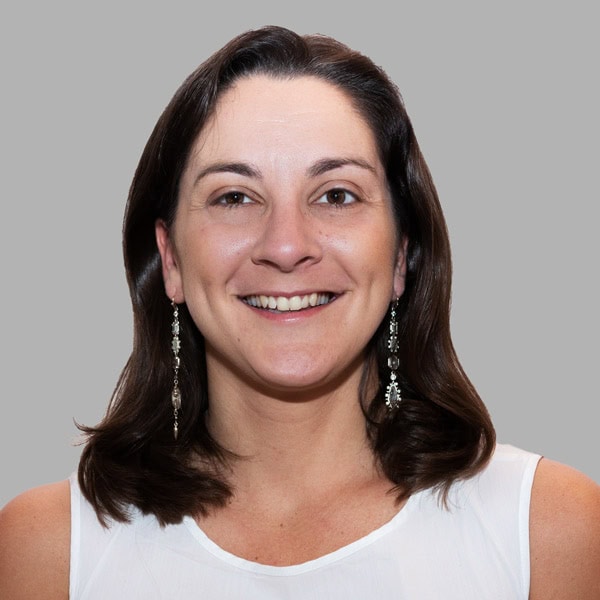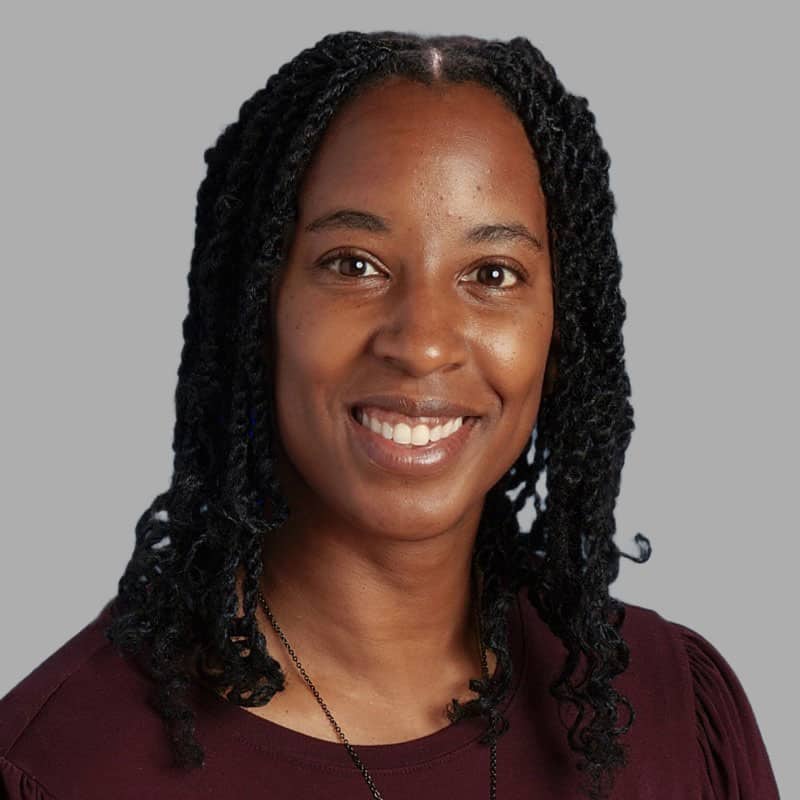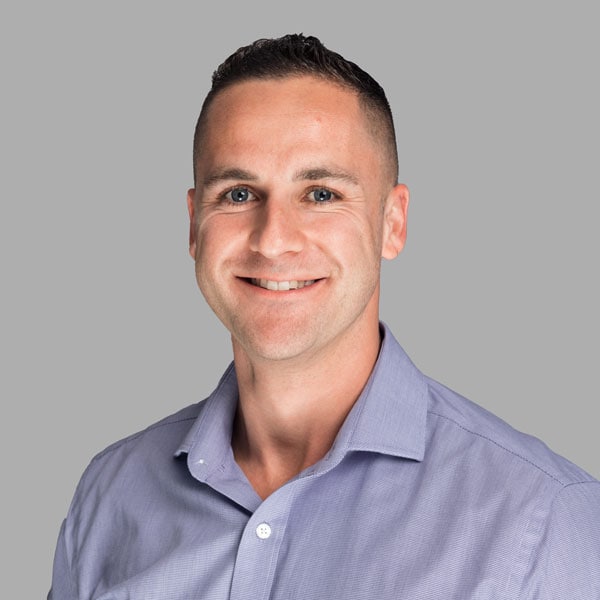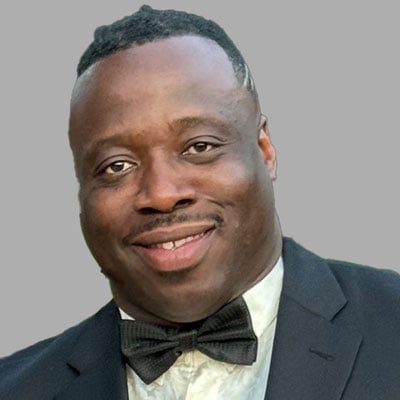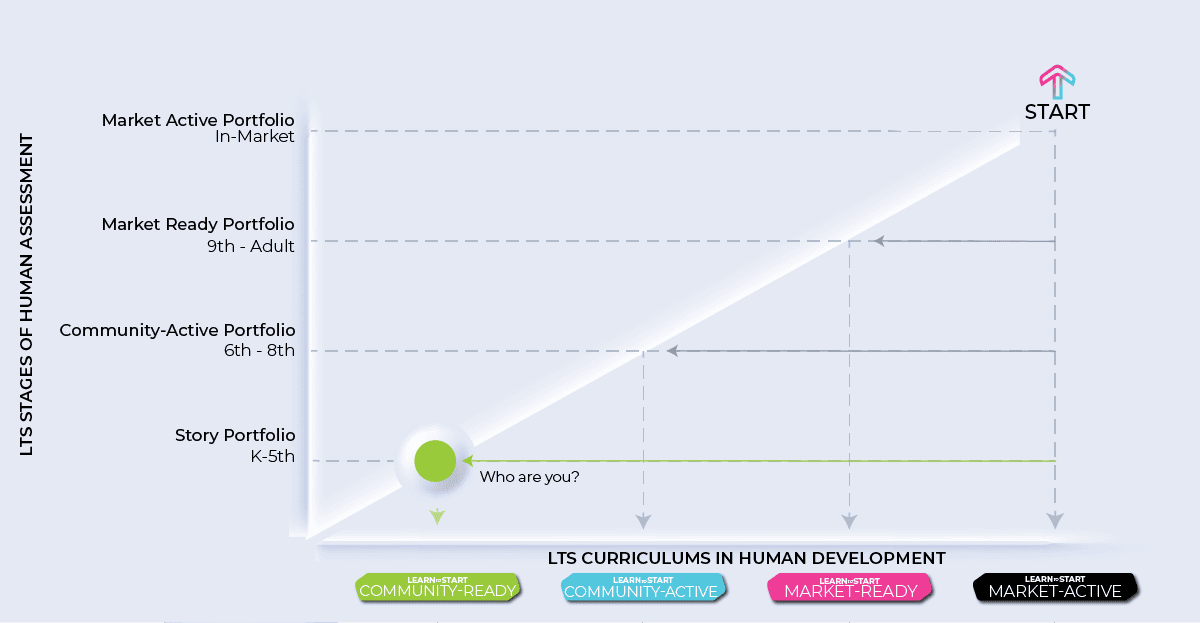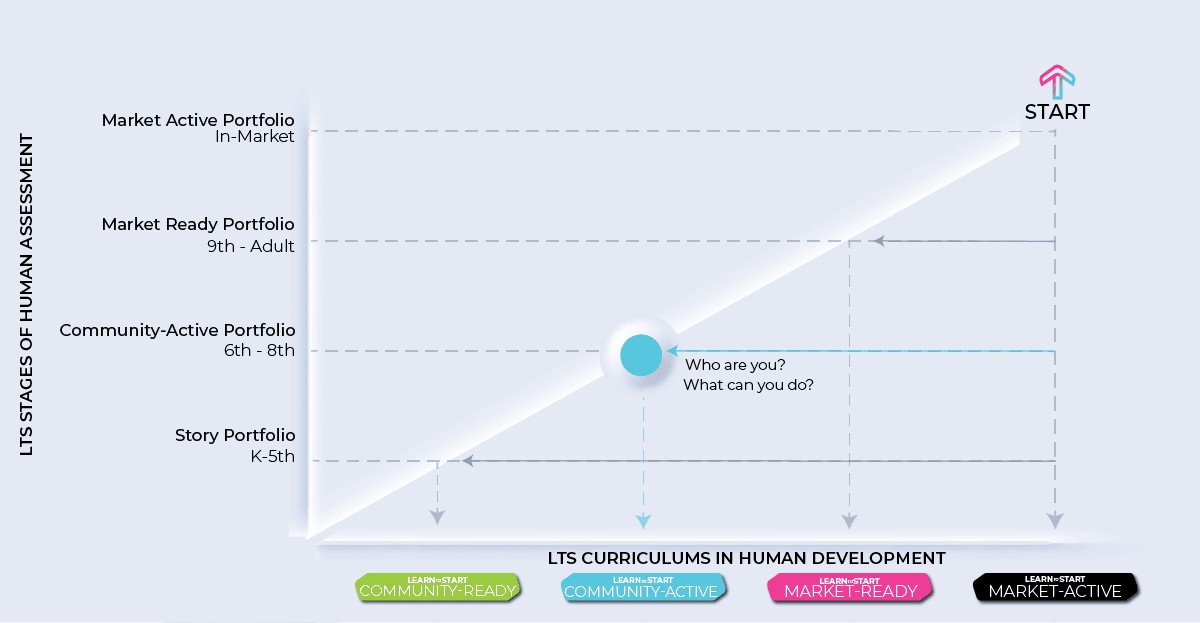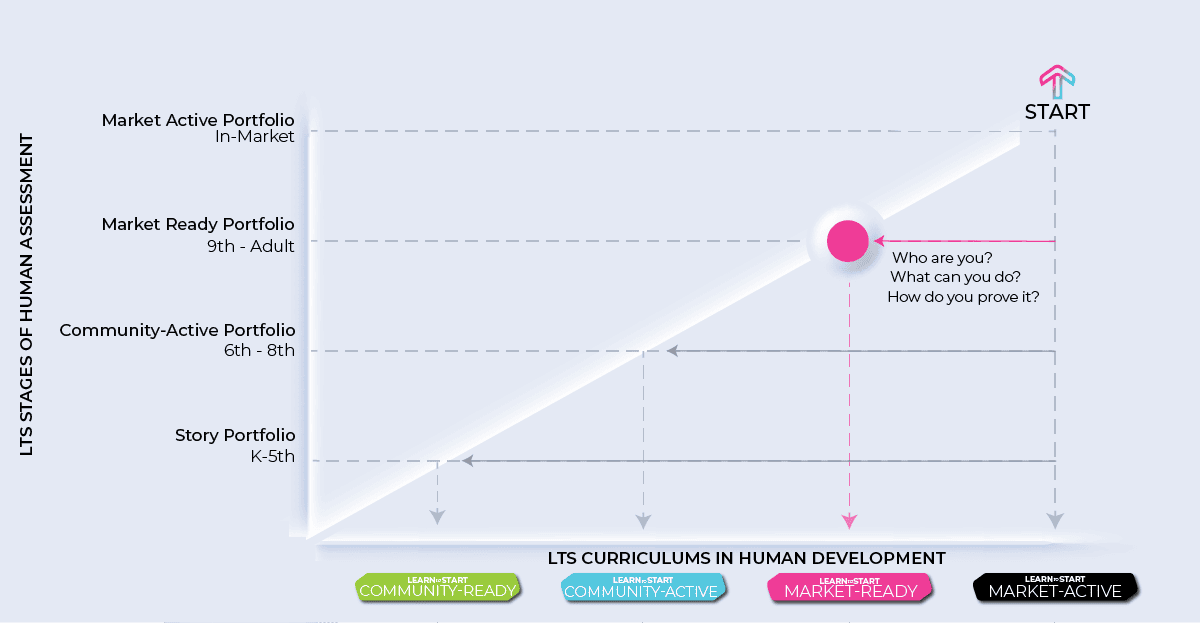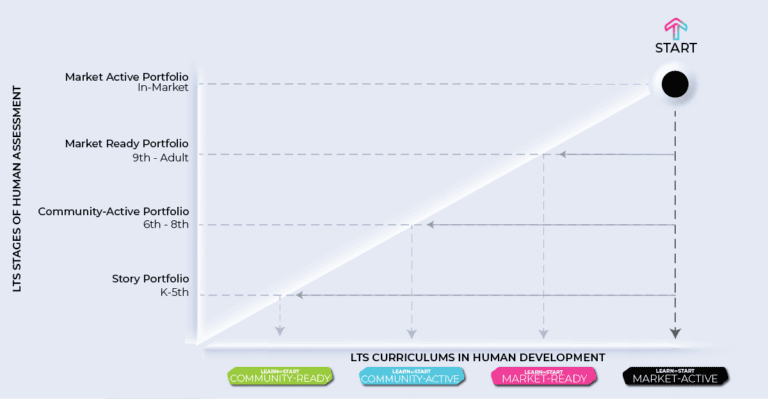
Curricula Reimagined as A COMPLETE
K-MARKET™ SOLUTION
The LTS Model drives the pedagogy behind the curricula at each level viewing the learner’s entire educational journey as a learning model for life and working in parallel with any organization’s academic or professional development programming.
With our differentiated approach, each learner emerges from the LTS program with a portfolio that communicates their individual value and story through the skills and traits they develop over time, reflecting their individual strengths, interests, and ambitions.
SERVING THE ENTIRE JOURNEY OF HUMAN DEVELOPMENT FROM START TO MARKET ENTRY
Public Schools
K-12
CHARTER SCHOOLS
K-12
Private Schools
K-12
Home School
Virtual School
Sports & Learning Academies
Teacher Training & Certification
Community Colleges & Adult Ed
Team Development for Corporations & Organizations
Workforce Development Organizations
Transformative Pathways Focused on Relevant 21st-Century Skill Building
Every LTS participant graduates aligned, productive, and competitive in a specific industry.
After choosing one of three pathways to achieve their alignment, participants identify a problem worth solving and iterate on their unique solution. Through this, they develop critical thinking, collaboration, creativity, leadership, and enterprise skills, along with other industry-specific skills.
Startup Project
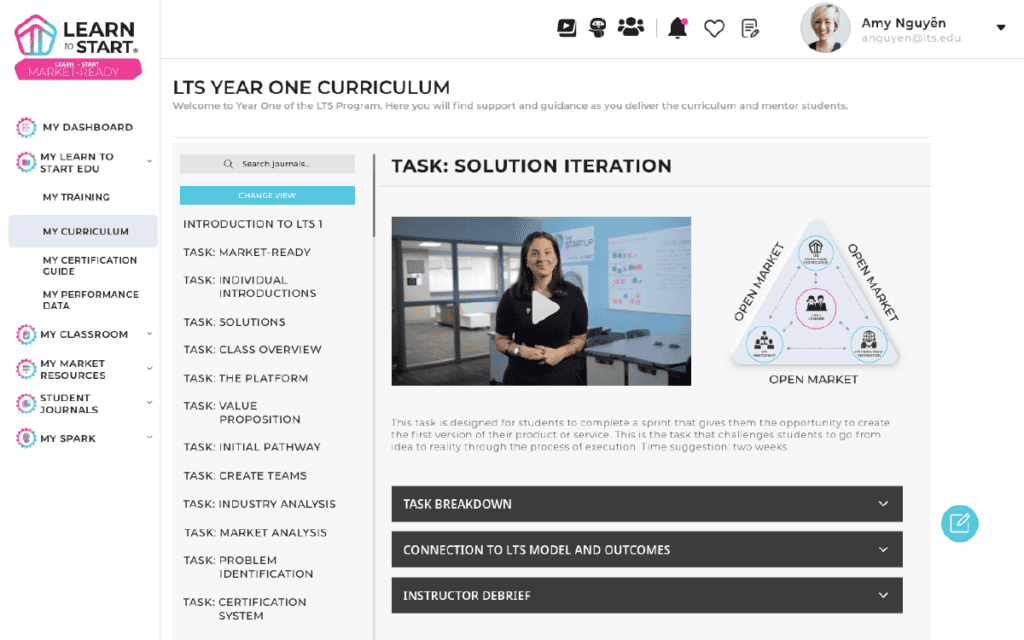
Community-Based Project

Career Project

Learn to Start Market-Ready™ Defined
A market-ready individual is confident, self-aware, collaborative, adaptable, and receptive to feedback. They are aligned to an industry based on their experiences and expertise. They are productive inside of their industry based on their ability to problem-solve. They are competitive amongst their peers based on their ability to produce solutions.
Three Options for Implementation
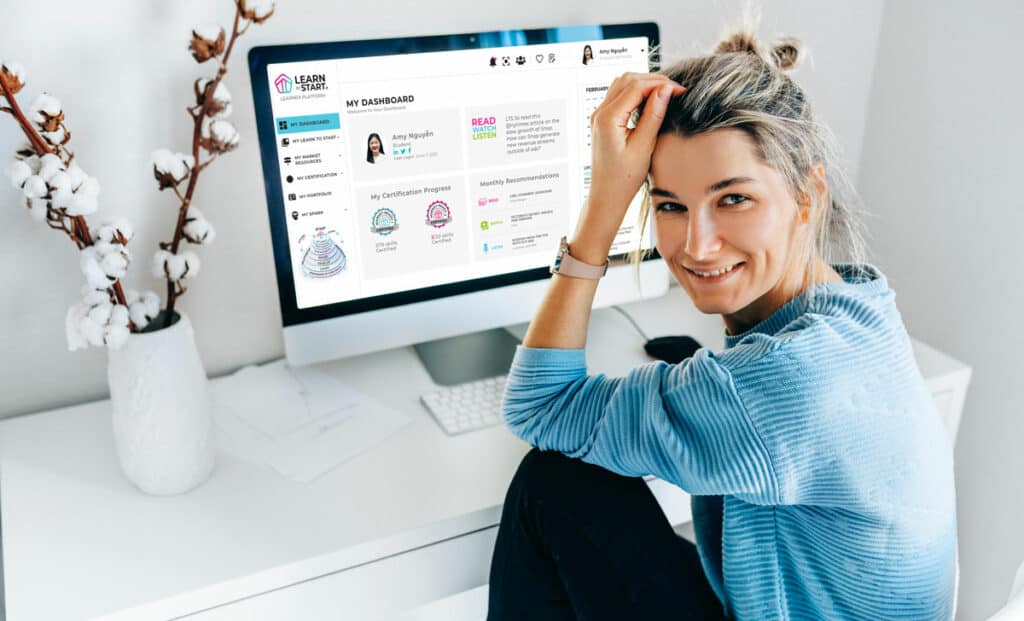
Learn to Start
Virtual Academy
Leveraging our technology platforms, our incredible in-house LTS expert instructors deliver a ground-breaking, online learning experience capable of guiding students to new Market-Ready™ outcomes not currently being produced inside of education today.
Accepting enrollments for high school, post secondary and adult education.

Learn to Start
SCHOOL PROGRAMMING
For education institutions interested in real and sustainable transformation, administration and teachers are trained to embed LTS as a full or partial foundational solution using Learn to Start’s ground-breaking model of implementation.
Available for all K-12 school types, as well as adult education institutions, and community programs.
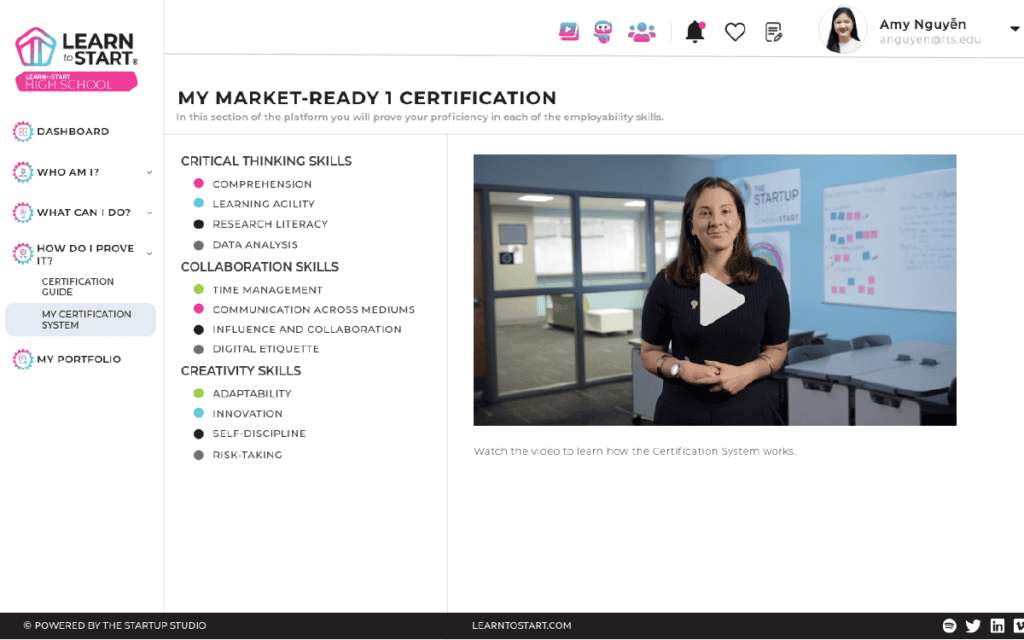
Learn to Start
TECHNOLOGIES
For organizations driving career readiness aligned to the LTS standards, our patent-pending infrastructure supports your program outcomes to move participants to Market-Ready™ certification while connecting them to your industry partners.
Schedule a demo today to see how Learn to Start can benefit your school or organization.
Addressing All Human Archetypes
The Learn to Start program meets the needs of all learners because no matter their individual interests, they can pursue their development inside of them and set a clear path for their future.
We have separated learners into three archetypes, each having equal value in their experience in LTS.
Highly Academic
This is the smallest group of learners who want to pursue rigorous academic programs like AP and IB. These learners are the most prepared for college, but lack preparation for unpredictable markets where they are not told what to do.
Non-Academic
This is the other smaller group of learners who do not find relevance in their classes, have higher rates of lateness and absences. These learners need to have classrooms that reflect their interests where they are not graded.
Hybrid
This is the largest group of learners who are academically inclined in some classes, but not overall and get the least amount of attention paid to them. They need to be seen as individuals with unique value.
Meet Our Expert LTS Instructors
Learn to Start K-Market™ Curriculums
Learn to Start
K-Market™ Curriculums

Grades K-5
Designed to serve the Grades K-5 Level of human development, we introduce the embedded technology and curriculum guides to enhance the class room’s lesson plans by consistently connecting teacher and student to the LTS model of development where each child begins the journey of answering the imperative question - Who am I?

Grades 6-8
Focused on community-based projects at the Grades 6-8 level of human development, we empower students to take action in a collaborative team experience as they begin developing their more advanced market-ready portfolios. Answering the questions Who am I?, and What Can I do?, students engage in the foundational skill development which will lead them to the process of earning the Learn to Start Market-Ready™ Certifications in High School.

Grades 9-Adult
Serving the Grades 9 to Adult learning levels of human development, Learn to Start students set their focus towards real market-entry based in the 20 demanded market skills inside their Market-Ready™ Certifications. Students will have up to four years to attain all of their stackable certification that produce portfolios that will answer all three questions - Who am I?, What can I do?, and How do I prove it?

Entry-level Employees & Managers
Entry-level employees and their managers build a culture of alignment, productivity and competitiveness that leads to improved talent identification, improved employee retention, and overall transparency of the entire team to enhance vertical mobility of talent.
Ready to learn more about each stage of Learn to Start?
Onboarding Your School, Organization, or Corporation
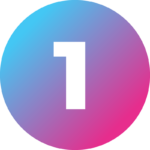
Demo
Platform Demo
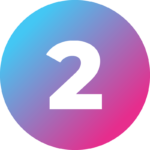
Aligning & Logistics
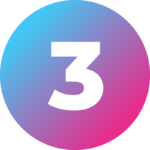
Launch
Contract & Launch
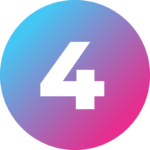
Train
Onboard & Train
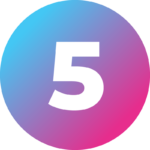
Expand
Support & Expand
Request LTS 2024/25 Program & Pricing Information
This site is protected by reCAPTCHA. The Google Privacy Policy and Terms of Service apply.
